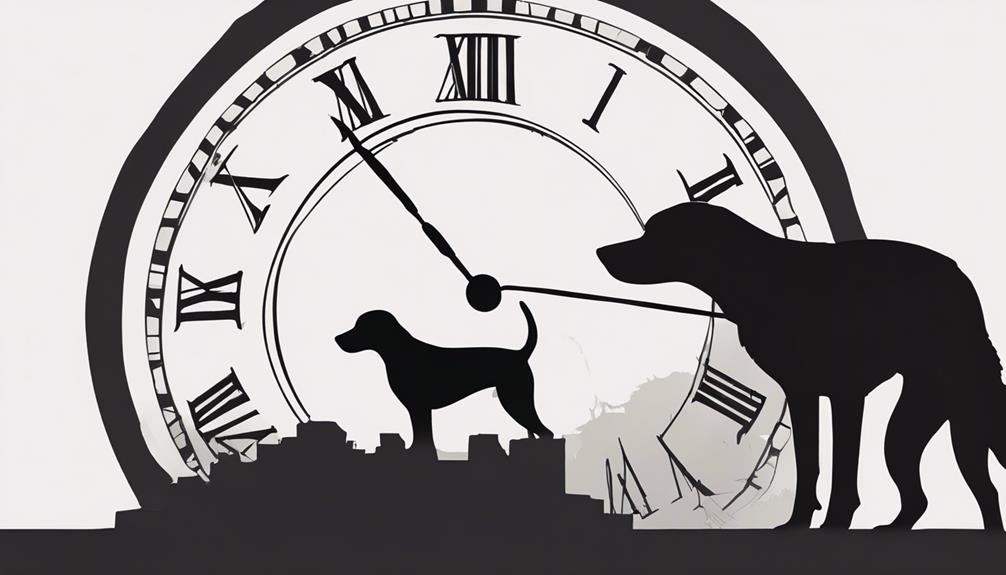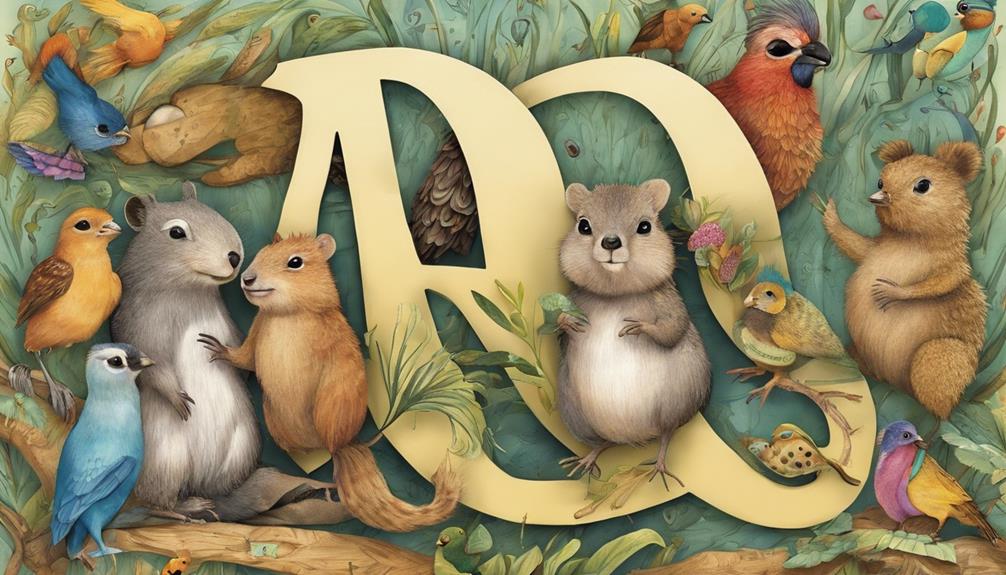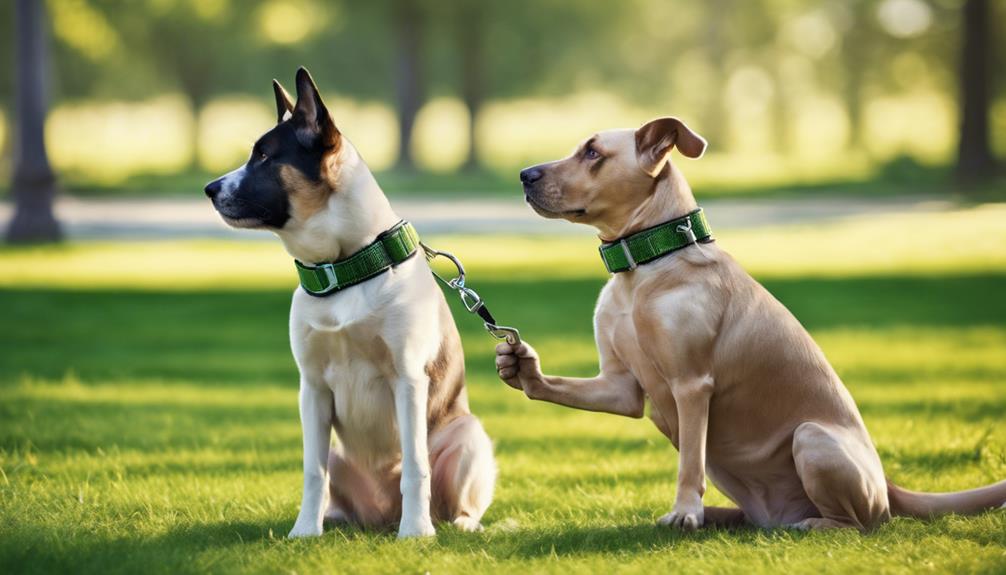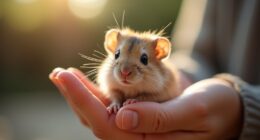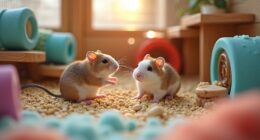When it comes to dog personalities, we can categorize them into distinct types. There's the Dedicated Worker, known for their strong work ethic and love for tasks. Guardian Dogs are loyal protectors needing proper training and leadership. Fun-Loving Dog, the Class Clown, brings joy with their entertaining antics. Family-Oriented Dogs are great for households, adoring kids and being loyal. Watch Dogs are vigilant and need attention and guidance. The Unique Canine with aristocrat behaviors enjoys peaceful settings. Independent Thinkers are smart and assertive, needing patience in training. Social Butterflies are outgoing and love interactions. Active Athletes thrive on exercise and play. The Old Soul category reveals even more about our furry friends' personalities.
Key Takeaways
- Working Dogs: Known for strong work ethic, thrives with tasks and obedience training, requires regular exercise.
- Guardian Dogs: Displays loyalty, protection, and vigilance, needs proper training and socialization.
- Fun-Loving Dogs: Goofy, entertaining, and life of the party, masters at performing silly tricks.
- Family-Oriented Dogs: Well-rounded temperament, excellent with children, and dedicated to the family unit.
- Watchful Dogs: Vigilant, alert, and tend to bark excessively, require attention and proper training.
The Dedicated Worker
When considering dog personalities, the Dedicated Worker stands out as a hardworking and reliable companion, excelling in tasks that demand obedience. Breeds in this category are known for their strong work ethic and enthusiastic to please, making them ideal for owners who value diligence and loyalty. These hardworking dogs thrive in environments where they're given a job to do or tasks to complete, tapping into their natural instincts to work alongside humans. Their dedication to tasks and obedience training make them suitable for roles such as search and rescue, therapy work, or even assisting individuals with disabilities.
For those considering these breeds, understanding that the Dedicated Worker requires consistent mental and physical stimulation to prevent boredom or destructive behaviors is crucial. Engaging them in activities that challenge their intelligence and provide opportunities for problem-solving will keep them content and fulfilled. Additionally, their high energy levels necessitate regular exercise and training sessions to maintain their focus and prevent behavioral issues. By investing time and effort into their development, owners can reveal the full potential of these hardworking companions.
The Guardian

Guardian dogs are known for their loyalty and protection, displaying a strong sense of responsibility towards their family. They're vigilant and alert, always ready to safeguard their territory.
Providing proper training and socialization is key to nurturing their natural instincts and ensuring a balanced temperament.
Loyalty and Protection
Exhibiting vigilance and an imposing presence, guardian dogs are revered for their protective nature and loyalty to their family and territory. These noble companions, such as German Shepherds, Rottweilers, and Doberman Pinschers, are known for their unwavering devotion and instinct to safeguard those they care for. Guardian dogs often display dominant behaviors, requiring assertive leadership to guide their protective instincts effectively. To nurture their loyalty and protection, extensive socialization and training are vital. When properly trained, these magnificent creatures serve as formidable protectors, creating a sense of security within their families and territories. Below is a table highlighting key characteristics of guardian dogs:
| Trait | Description | Example Breeds |
|---|---|---|
| Loyalty | Devotion to family and territory | German Shepherds |
| Protection | Instinct to safeguard loved ones | Rottweilers |
| Dominant Behaviors | Need for confident leadership | Doberman Pinschers |
Strong Sense of Responsibility
As we explore the Strong Sense of Responsibility in Guardian dogs, it becomes evident that their protective instincts go beyond mere loyalty and vigilance. Guardians are known for their unwavering dedication to their family or pack. This sense of responsibility is deeply ingrained in their nature, leading them to exhibit dominance at times.
To effectively manage a Guardian's behavior, a confident owner is required to establish clear boundaries. Proper training and extensive socialization are essential for Guardians to thrive in various situations while fulfilling their protective instincts appropriately. Their loyalty is unmatched, making them formidable protectors.
Understanding and respecting a Guardian's strong sense of responsibility is key to nurturing a harmonious relationship with these remarkable dogs.
Vigilant and Alert
With a keen sense of awareness and a watchful demeanor, the Vigilant and Alert personality type in dogs exemplifies a constant readiness to protect and defend. Guardian dogs are known for being highly vigilant, always on the lookout for potential threats. Their protective nature stems from a deep sense of loyalty and duty.
Due to their inherent dominance, they may require a firm and confident owner who can establish boundaries effectively. Training a Guardian dog involves socialization to prevent excessive barking and make certain they interact well with others. Owners must invest time and attention in their development to channel their protective instincts positively.
Choosing a Guardian dog means committing to providing the necessary training and care for a watchful, vigilant companion.
The Class Clown
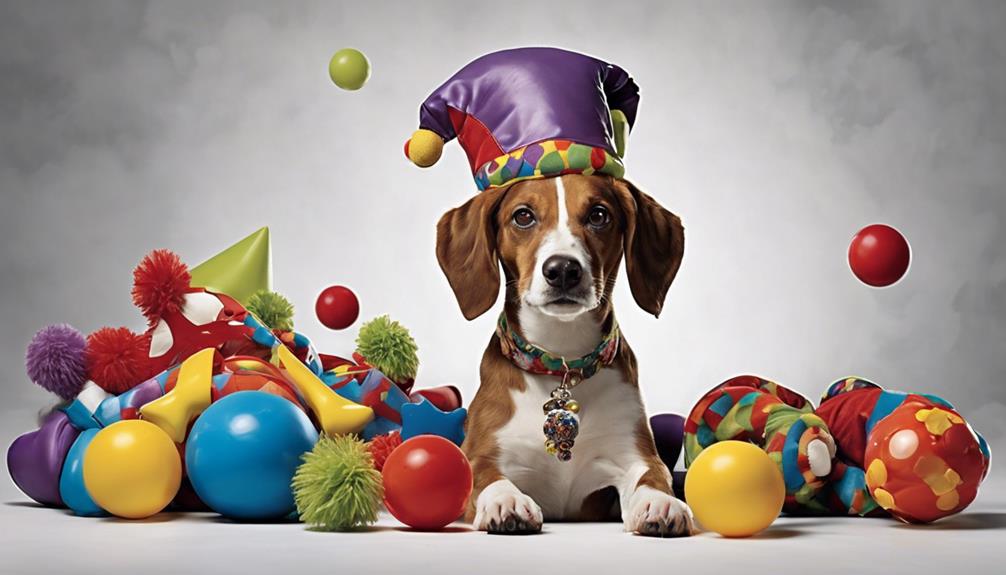
Let's immerse ourselves in the delightful world of The Class Clown dogs, known for their goofy, sociable, and entertaining personalities. These dogs are the life of the party, always ready to bring a smile to your face with their playful antics. Class Clown dogs guarantee on social interactions and love nothing more than entertaining their human companions.
Their unfocused and clumsy nature adds a fun and light-hearted energy to any household. They enjoy being the center of attention and excel at making people laugh with their humorous demeanor. While they may sometimes be a bit silly, Class Clown dogs are experts at bringing joy and laughter to their families.
With their entertaining personalities, Class Clown dogs make sure that there's never a dull moment. Whether they're chasing their tail or performing silly tricks, these dogs are guaranteed to keep you entertained and uplifted. So, get ready to laugh and have a blast with your very own Class Clown canine companion!
The Family Dog
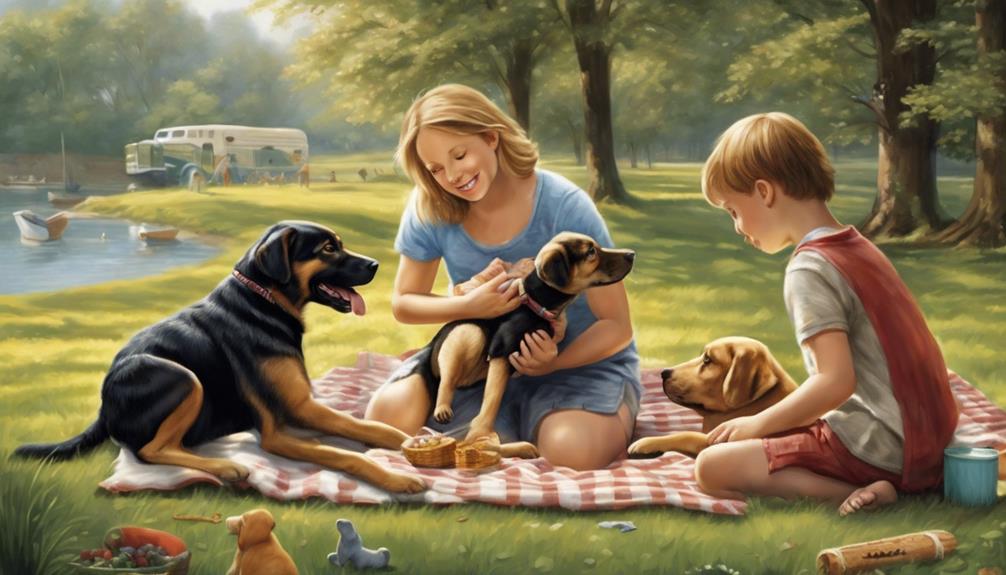
Immersing ourselves in the delightful world of The Family Dog, we encounter a well-rounded temperament and an exceptional compatibility with various household dynamics. These dogs are loyal companions, forming strong bonds with their human family members. They are known for their loving and caring nature, making them great for families seeking a devoted pet. The Family Dog is reliable and excels at being around children, showing dedication and loyalty. Due to their balanced nature, they can become over-protective of their family members. This type of dog is harder to find, but once welcomed into a home, they thrive on being part of the family unit.
| Trait | Description |
|---|---|
| Temperament | Well-rounded and loving nature |
| Compatibility | Excellent with children and various household dynamics |
| Loyalty | Dedicated and loyal to their family members, can be over-protective |
The Watch Dog
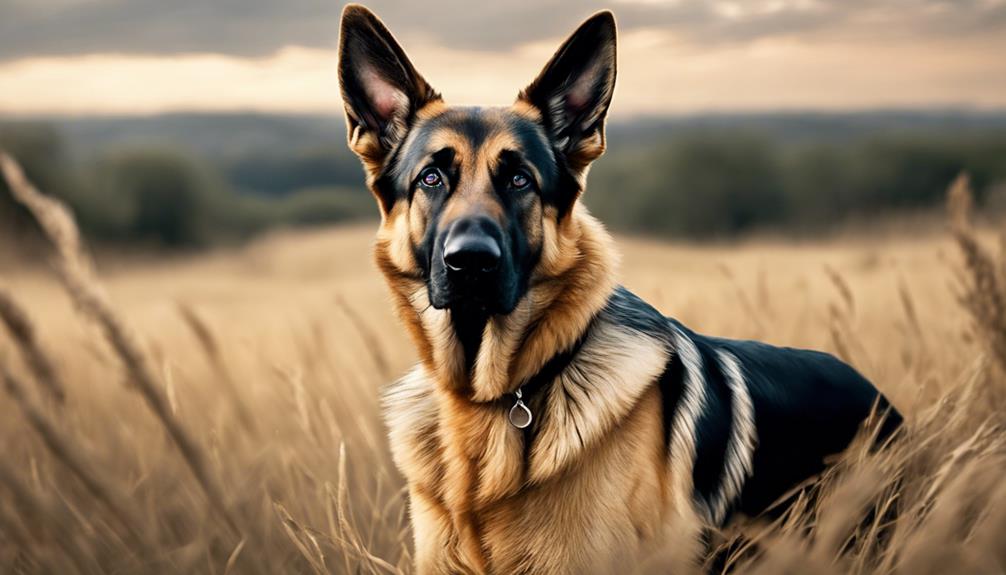
When considering The Watch Dog personality type, one must acknowledge their vigilant and alert nature. Watch Dogs are known for their keen awareness of their surroundings and their tendency to bark excessively to alert their owners of potential threats. It's essential for owners of Watch Dogs to provide them with ample attention and extensive socialization to help manage their protective instincts effectively. These dogs thrive in secure environments where they can channel their alertness in a positive way. Owners should also invest time in proper training to guarantee that their Watch Dog's guarding tendencies are well-managed.
Confident owners who can establish themselves as leaders are best suited for the Watch Dog personality type. By providing the right environment, attention, and training, owners can help their Watch Dogs fulfill their role as protectors while keeping their excessive barking in check. Remember, understanding and respecting the instincts of a Watch Dog is key to fostering a harmonious relationship with this vigilant and alert type of dog personality.
The Aristocrat

The Aristocrat dogs exude a sense of elegance and grace in their demeanor, reminiscent of noble ancestry. With their regal behavior, these canines may not readily conform to traditional training methods, requiring a patient and experienced hand.
To foster a harmonious relationship with an Aristocrat pup, owners should provide a tranquil and structured environment that aligns with their refined sensibilities.
Classy Canine Characteristics
Exhibiting a feline-like demeanor, the Aristocrat dog personality type gravitates towards quieter environments. These regal canines prefer serene homes and exude an air of sophistication. Training them can be a challenge due to their independent nature and self-assured demeanor.
The Aristocrat dogs enjoy a peaceful setting where they can relax and feel at ease. They may not be the ideal choice for families with young children, as they value their space and independence. Breeds like Greyhounds, Borzois, and Italian Greyhounds often showcase characteristics of the Aristocrat personality.
Understanding and respecting their need for a calm environment is essential in nurturing a harmonious relationship with these classy canines.
Noble Behavior Traits
In our experience, the Aristocrat dog personality showcases noble behavior traits that exude a sense of regal dignity and independence. These pets are feline-like and prefer quieter homes, displaying a self-assured demeanor that can make training a challenge. Due to their independent nature, Aristocrat dogs may not be the best fit for families with kids. Their regal demeanor and dignified behavior set them apart as a unique pet choice. These dogs thrive in a calm and stable environment, where their aristocratic traits can truly shine.
| Personality Traits | Independent | Family Dog |
|---|---|---|
| Aristocrat | Yes | Not ideal |
The Independent Thinker
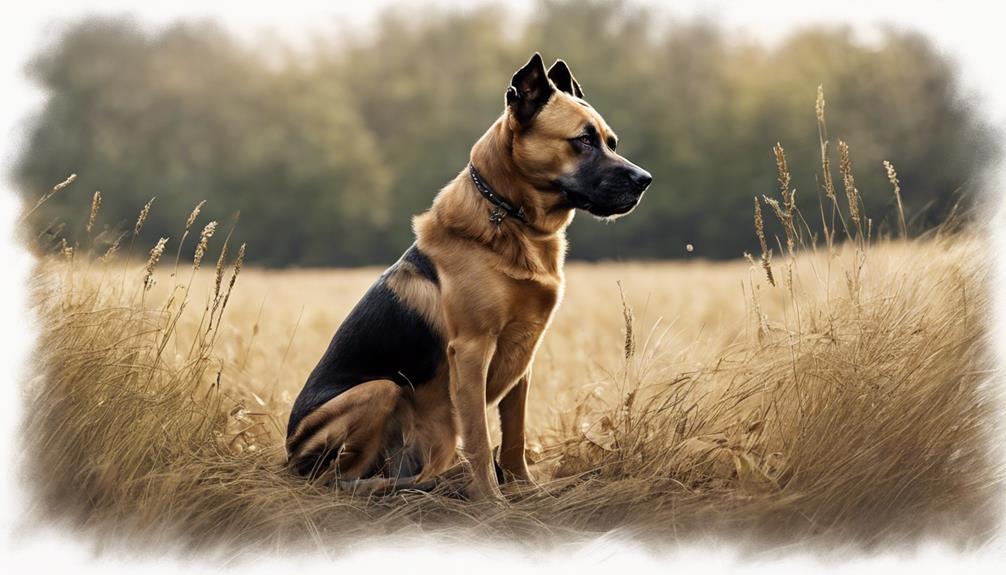
Independent Thinker dogs stand out for their self-assured and intelligent nature, resembling feline traits in their demeanor. These canines are independent and require patience in training due to their strong will. They thrive in quieter environments and may not be the ideal choice for households with young children. Understanding their need for space and mental stimulation is pivotal for a harmonious relationship.
Independent Thinkers can be self-starters, but without proper mental challenges, they may engage in unwanted behaviors. To prevent this, provide them with interactive toys and activities that stimulate their minds. Respect their independence, and establish clear boundaries to build trust and a strong bond. Remember, consistency is key when training these intelligent dogs. By acknowledging their unique personality and catering to their needs, you can guarantee a fulfilling companionship with an Independent Thinker.
The Social Butterfly
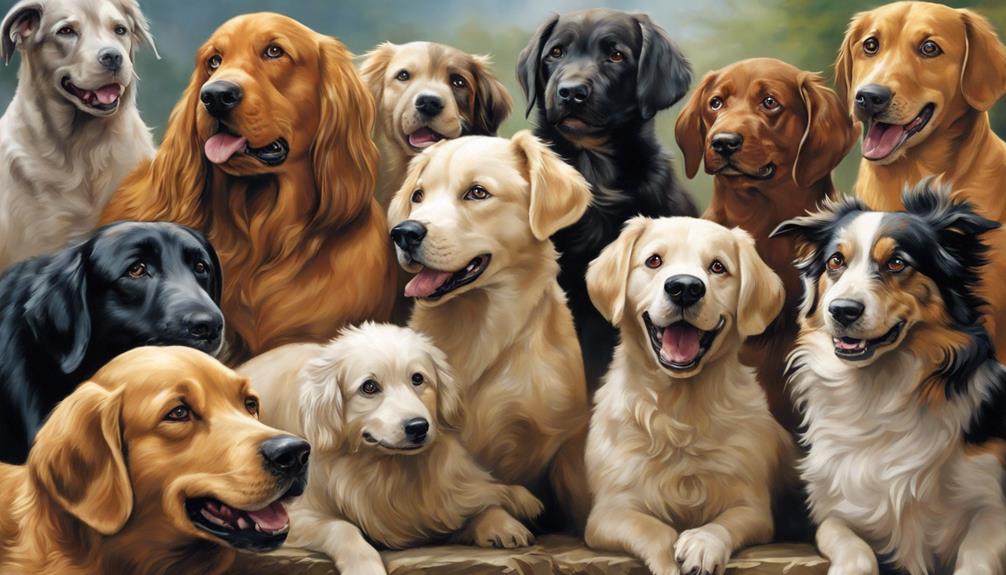
With their highly sociable nature and outgoing demeanor, Social Butterfly dogs thrive on interactions with people. These dogs enjoy being the center of attention at social gatherings and may have varied energy levels, adapting well to different social situations. While they love human companionship, Social Butterfly dogs may not always appreciate living in households with young children or other pets, as they prefer undivided attention.
Breeds such as the Papillon, Pomeranian, Keeshond, Poodle, and Labrador Retriever are known to match well with the Social Butterfly personality due to their friendly and outgoing nature. If you're considering a furry friend who loves to socialize and be the life of the party, a Social Butterfly dog might be the perfect match for you. Remember, these breeds thrive on interactions and will bring joy and liveliness to your home with their outgoing and sociable demeanor.
The Athlete
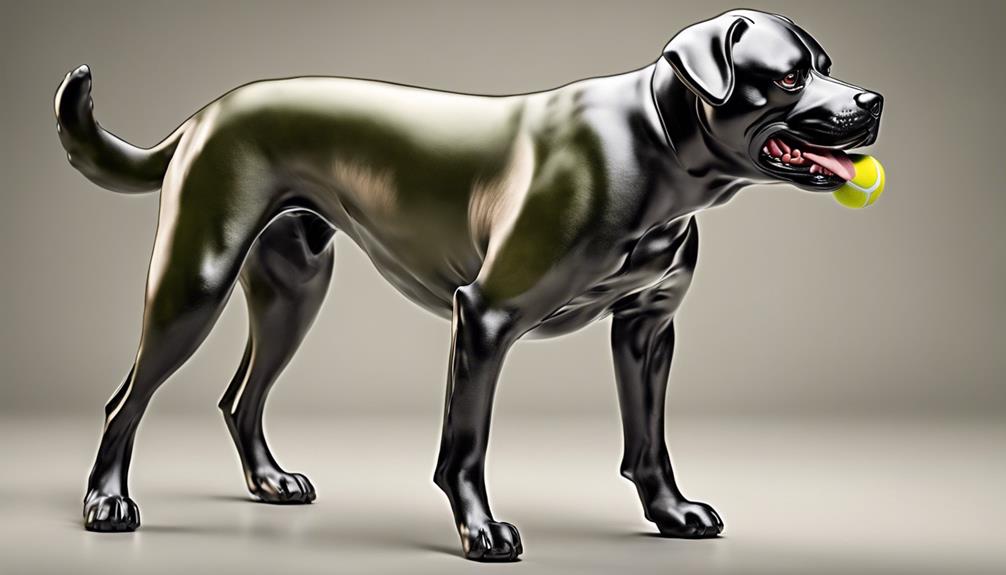
Highly energetic and constantly seeking physical activity, the Athlete dog personality type is characterized by a love for exercise and sociability. Breeds such as Labrador Retrievers, Border Collies, and Australian Shepherds fall into this category due to their high energy levels and need for mental stimulation. Athlete dogs thrive on regular exercise and playtime, making them a great choice for active individuals or families with a yard to run around in.
Training an Athlete dog requires consistency and patience. Due to their intelligence, they quickly pick up on commands, but they can also get bored easily if not mentally challenged. Engaging them in activities like agility training, fetch, or obedience classes can help channel their energy in a positive direction. Socialization is crucial for Athlete dogs to make sure they interact well with other animals and people.
If you're considering an Athlete dog, be prepared to dedicate time each day to physical exercise and mental stimulation to keep them happy and healthy.
The Old Soul
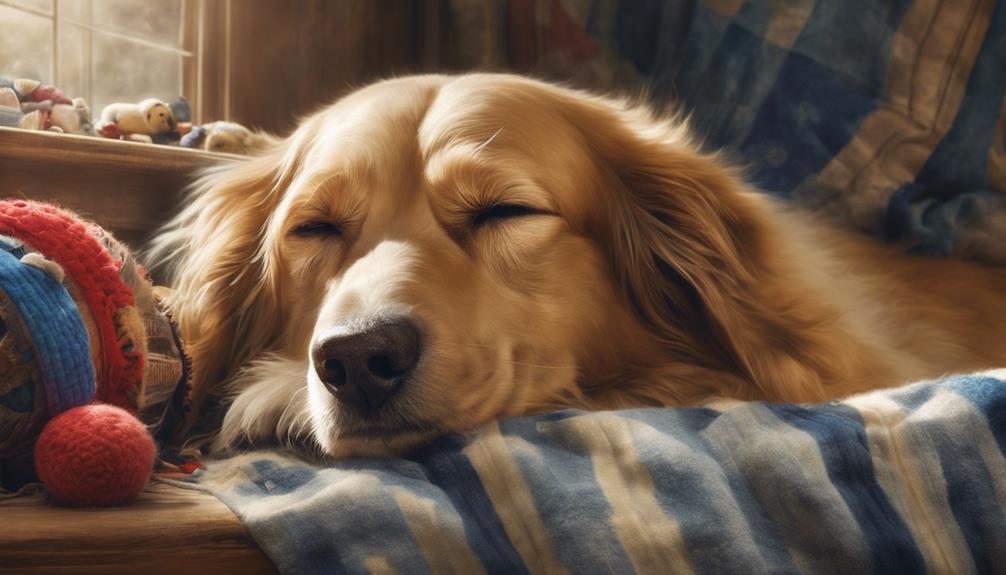
Characterized by a laid-back and wise demeanor, the Old Soul dog personality type is known for its gentle nature. Dogs with this personality exhibit a calm demeanor, making them a soothing presence in any home. While they may have bursts of energy, their overall temperament leans towards relaxation and tranquility.
Training an Old Soul dog can be a bit challenging beyond the basics, as their easygoing nature may lead to a lack of motivation. Breeds commonly associated with the Old Soul personality include Greyhounds, Borzois, Irish Wolfhounds, Scottish Deerhounds, and Italian Greyhounds. These dogs are best suited for owners who appreciate their gentle and wise demeanor, as they thrive in environments where their peaceful energy is cherished.
Embracing the Old Soul personality type in a dog can bring a sense of serenity and companionship to those who value a laid-back and mellow canine companion.
Frequently Asked Questions
What Are the 5 Personality Types of Dogs?
When it comes to the 5 personality types of dogs, they include:
- Excitable/hyper-attached
- Anxious/fearful
- Aloof/predatory
- Reactive/assertive
- Calm/agreeable
Each type affects a dog's behavior and interactions. Understanding these types can help address issues and strengthen the bond with your dog.
Different personalities may need specific training methods. Recognizing and accommodating these differences can lead to a better relationship with your furry friend.
How Many Dog Personality Types Are There?
There are five common dog personality types: excitable, anxious, aloof, reactive, and calm. Understanding these traits is vital for effective training and care.
Dogs can exhibit a mix of these personalities to varying degrees. Recognizing and addressing these traits can lead to better behavior management and overall well-being.
Professional trainers and behaviorists take these personality types into account when creating training plans and interventions for dogs.
How Do You Describe a Dog's Personality?
When describing a dog's personality, we look at traits like independence, confidence, timidity, and adaptability.
Recognizing a dog's unique likes, dislikes, skills, and needs helps us understand its personality.
Factors like environment, training, genetics, and life experiences shape a dog's personality.
Respecting and acknowledging these traits is essential for building a strong bond and effective communication with your furry friend.
Different personalities can influence how dogs interact with humans, other dogs, and their surroundings.
What Breed of Dog Has the Most Personality?
When it comes to dog breeds with vibrant personalities, Golden Retrievers often steal the show. Their friendly, sociable, and enthusiastic-to-please nature makes them stand out as excellent companions for various activities.
Whether playing fetch or snuggling on the couch, Golden Retrievers bring a special charm to any household. Their lovable demeanor and adaptability make them a favorite choice for families seeking a loyal and fun-loving furry friend.
Conclusion
To sum up, understanding the different personalities of dogs can help us better connect with our furry friends and provide them with the love and care they need.
Whether your dog is a dedicated worker, a social butterfly, or an old soul, each personality type brings its own unique qualities to the table.
By recognizing and appreciating these traits, we can strengthen our bond with our canine companions and create a harmonious relationship based on mutual understanding and respect.
Stay tuned for more tips and tricks on how to best care for your beloved pet!



